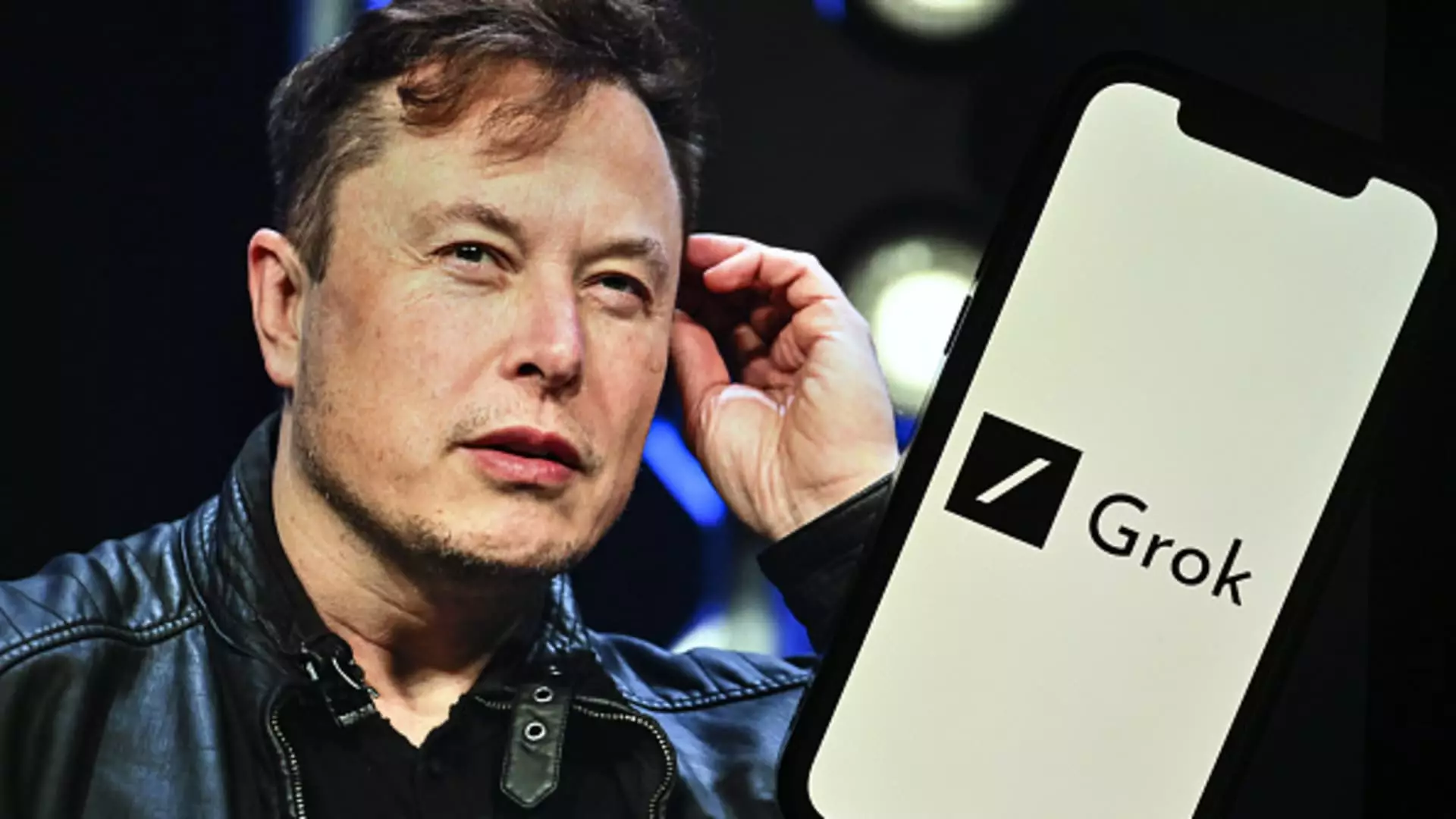The landscape of artificial intelligence continues to shift dramatically as Elon Musk’s xAI introduces Grok 3, a model that aims to eclipse current offerings from industry giants like OpenAI and DeepSeek. Musk’s latest endeavor showcases both ambition and bold claims, stirring interest and skepticism alike. In this article, we will dissect the implications of this release, the technological advancements Grok 3 offers, and the larger context of competitive dynamics within the AI industry.
At a recent event streamed on the platform X, Musk showcased Grok 3’s capabilities, presenting it as a significant enhancement over its predecessor, Grok 2. He proclaimed it to be “an order of magnitude more capable,” a statement that reflects the vision he has for this technology. This optimistic assertion can engender excitement but also raises questions about the testing methodology that led to such conclusions. According to xAI, Grok 3 performed exceptionally well on standardized tests across disciplines like mathematics, science, and coding, which positions it as a formidable contender in the market.
Despite this assertion, it is essential to analyze the criteria upon which these claims are founded. The AI field is fraught with a history of exaggerated projections, particularly when novel systems are introduced. As users and stakeholders, we should seek transparency regarding how Grok 3’s efficacy compares to existing models on a broader range of tasks, beyond the specific tests selected for public demonstration.
In tandem with Grok 3, xAI announced “Deep Search,” a product that aspires to redefine how users interact with digital information. Musk’s ambition to develop a “next-generation search engine” suggests a desire to create an ecosystem where users can access a wealth of information more intuitively and accurately. However, the success of such a venture depends heavily on the underlying algorithms and dataset curation. Unlike traditional search engines, which often rely on rank-based models, an AI-driven search engine like Deep Search must prioritize context and relevance, incorporating advanced reasoning capabilities to provide meaningful results.
Given Musk’s public concerns about AI’s potential risks, the ethical implications of deploying such technology should not be overlooked. Implementing Deep Search effectively requires balancing user experience with responsible data handling practices to mitigate privacy concerns and misinformation.
A Competitive Landscape
The AI industry is witnessing a heated competition, particularly highlighted by the ongoing rivalry between Musk and OpenAI. This history adds a layer of complexity to the emergence of Grok 3. The discord reached a peak when Musk attempted to lead a significant investment bid to acquire openAI’s parent organization, valued at $97.4 billion. This friction between former partners underscores how personal relationships can influence the direction of technological innovation.
The stakes are further heightened by developments from global contenders like DeepSeek, a Chinese startup that recently made headlines with its claims of producing comparable AI capabilities to OpenAI’s latest model, o1. The fact that DeepSeek achieved such strides using a less resource-intensive approach, while facing geopolitical restrictions on technology transfer, complicates the competitive narrative.
With xAI having recently expanded its GPU resources through its “Colossus supercomputer,” the battle for AI preeminence is not merely technological but also strategic. Musk’s xAI now has doubled its computational power, suggesting aggressive moves to not only develop Grok 3 but to position it as a leader in the AI race.
As Grok 3 launches for premium subscribers, the AI community must remain vigilant. The initial rollout of any AI model often involves trial and error, and while Musk emphasizes that improvements will be continuous, users should approach the technology with a discerning mindset. The potential of Grok 3 can be monumental, yet it is essential to temper expectations with reality.
Musk’s assertion of Grok 3 being “scary smart” may intrigue some, but it is the long-term performance and ethical deployment of such systems that will ultimately shape the future of AI. As competition thrives, the discourse surrounding AI will be critical in guiding both innovation and regulatory responses to ensure that transformative technology serves humanity optimally.


Leave a Reply